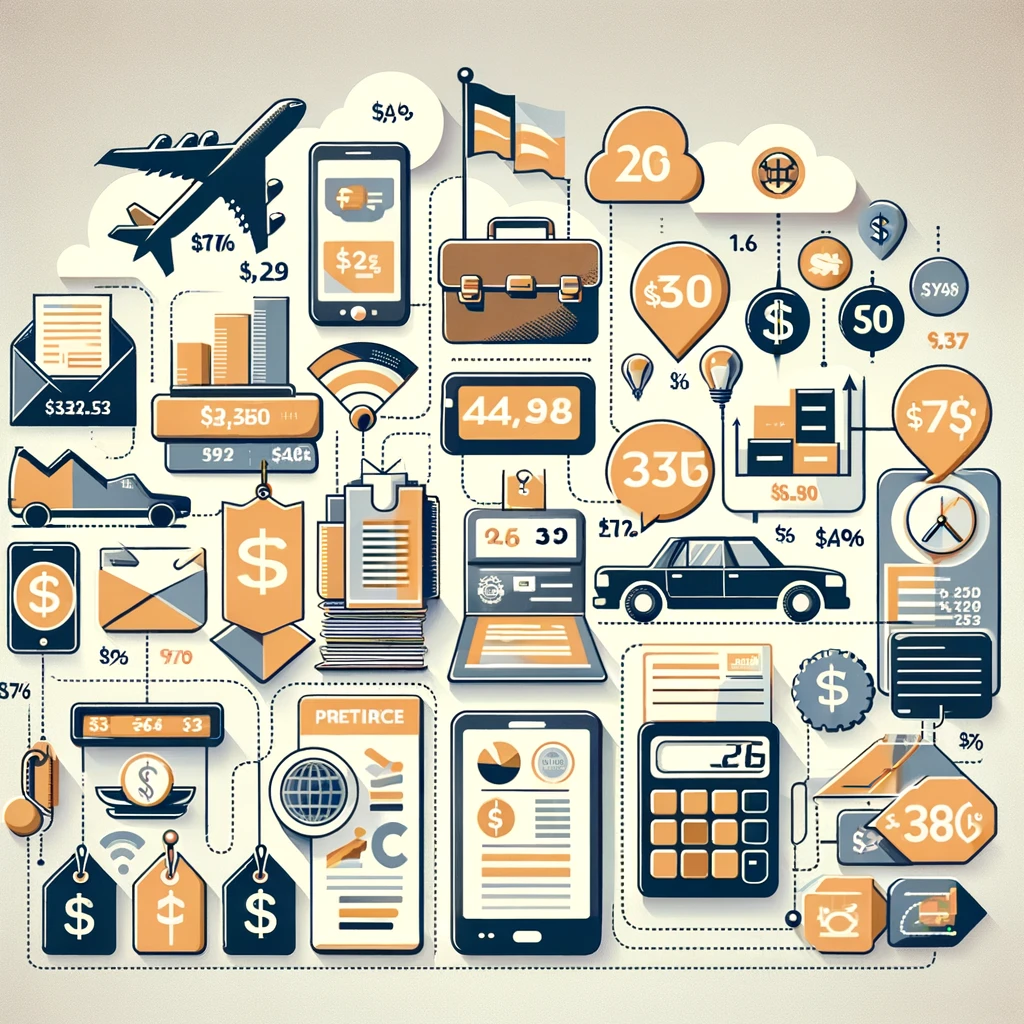Understanding the intricacies of business expenses is pivotal for small business owners aiming to optimize their financial strategies and reduce tax liabilities. This article expands on the main topic, 39 Small Business Tax Deductions, by focusing on the practical aspects of managing business expenses effectively.
Importance of Accurately Managing Business Expenses
Accurate management of business expenses not only facilitates smoother operations but also ensures compliance with tax laws, helping to avoid legal penalties and maximize potential tax deductions.
Understanding Business Expense Management
Business expenses encompass all costs involved in the operation and maintenance of a business. Understanding these expenses is essential for effective budgeting and financial management.
Definition and Overview of Business Expenses
Business expenses are the costs incurred during the ordinary course of business operations. These include both fixed expenses, such as rent, and variable costs, such as utility bills and office supplies.
Categories of Business Expenses
The spectrum of business expenses is broad, covering everything from overhead costs like rent and utilities to variable costs such as advertising and legal fees. Recognizing these categories helps businesses track and manage expenses more effectively.
Detailed Breakdown of Common Business Expenses
Delving into the specifics of common business expenses provides clarity on how each type can be managed and potentially optimized for tax advantages.

Insurance
Insurance costs for small businesses cover a range of policies, including liability insurance, property insurance, and workers’ compensation. These policies protect the business from potential losses due to accidents, theft, or other liabilities. The premiums paid for these insurance policies are fully deductible as business expenses, helping to lower the overall cost of risk management.
Advertising
Advertising expenses include costs incurred through various media such as online ads, print media, billboards, and television commercials. Advertising is essential for promoting products or services and attracting new customers. These costs are generally fully deductible, allowing businesses to invest in growth while managing their taxable income.
Utilities
Utilities are a necessary expense for any business, covering electricity, water, gas, and telecommunications services. These costs ensure that the business can operate efficiently and are fully deductible. Effective management of utility usage can help reduce these costs, but they remain an essential part of business operations.
Depreciation
Depreciation is an accounting method that allows a business to allocate the cost of tangible assets over their useful lives. It helps businesses recover the cost of significant purchases like equipment and vehicles through annual tax deductions. This strategy is crucial for managing the financial impact of expensive assets over time.
Employee Wages
Employee wages are a significant part of business expenses, encompassing salaries, overtime pay, bonuses, and other compensation forms. These are fully deductible, reflecting the direct costs associated with employing staff. Ensuring competitive wages is essential for attracting and retaining skilled workers.
Mortgage Interest
Mortgage interest can be a substantial cost for businesses that own property. However, this interest is deductible, helping to reduce the tax burden associated with commercial property ownership. It’s a critical deduction for businesses investing in their own facilities.
Office Supplies
Office supplies include everyday items like paper, pens, and cleaning supplies necessary for maintaining an office. These costs, though seemingly minor, can add up and are fully deductible. Keeping track of these expenses is crucial for accurate financial reporting.
Interest
Interest expenses on business loans, credit lines, or mortgages are deductible. This deduction is vital for businesses that rely on borrowing to fund operations or growth initiatives, helping to mitigate the cost of financing.
Business Vehicles
Expenses related to business vehicles, whether owned or leased, including maintenance, fuel, and depreciation, are deductible. For businesses that require vehicle use for operations, these deductions are essential for managing costs.
Employee Benefits
Employee benefits, such as health insurance, retirement plans, and educational assistance, are deductible expenses. Offering competitive benefits is crucial for maintaining a happy, healthy workforce.
Maintenance and Repairs
Costs incurred for maintaining and repairing business equipment and property are fully deductible. Regular maintenance ensures that business operations run smoothly and can prevent more significant expenses in the future.

Moving Expenses
If a business needs to relocate, the costs associated with moving are deductible. This can include expenses for moving equipment, inventory, and supplies, essential for businesses undergoing transitions or expansions.
Rent
Rent expenses for office space, warehouses, or retail locations are fully deductible. For many businesses, rent is one of the largest fixed expenses and is crucial for operations.
Subscriptions
Subscriptions to business-related publications, industry-specific databases, or software services are deductible. These resources are vital for keeping up-to-date with industry trends and maintaining operational efficiency.
Travel Expenses
Travel expenses for business purposes, including airfare, hotel stays, and per diems, are deductible. For businesses with operations or clients spread out geographically, these expenses are necessary for maintaining relationships and managing operations.
Legal Fees
Legal fees incurred from business activities, including contract negotiations, disputes, and general legal counsel, are deductible. Legal advice is crucial for protecting the business and ensuring compliance.
Business Meals
Business meals with clients or employees can be partially deductible, usually up to 50%. These meetings are important for networking and discussing business operations.
Taxes
Various business taxes, including state income tax, property tax, and payroll tax, are deductible. Effectively managing these taxes is essential for legal compliance and financial health.
Credit
Expenses related to extending credit to customers, such as interest on receivables or bad debt write-offs, can be deductible. Managing customer credit is crucial for maintaining cash flow and financial stability.
Education
Educational expenses for employee training and development are deductible. Investing in employee education can lead to more efficient, innovative, and competitive business practices.
Home Office
For small business owners working from home, a portion of home-related expenses, such as mortgage interest, insurance, and utilities, can be deductible. These deductions require that the home office be used regularly and exclusively for business.

Payroll
Payroll expenses, including wages, payroll taxes, and related administrative costs, are fully deductible. Efficient payroll management is vital for both financial management and employee satisfaction.
Software
Software purchases and subscriptions necessary for business operations, such as accounting software or industry-specific applications, are deductible. These tools are essential for efficient business management.
Travel
Additional travel expenses for business beyond typical travel expenses can include costs like international travel or specialized transport services, which are also deductible. These are essential for businesses with a global footprint or specialized transportation needs.
Effective Management of Business Expenses
Managing business expenses effectively requires a strategic approach, including regular tracking and evaluation to ensure financial efficiency and compliance with tax regulations.
Best Practices for Tracking and Categorizing Expenses
Implementing robust systems for tracking and categorizing expenses helps ensure accurate financial reporting and facilitates easier tax preparation. Using modern accounting software can automate much of this process.
Tools and Software for Expense Management
Numerous tools and software packages are available to help businesses manage their expenses. These range from basic accounting software to more advanced systems that integrate expense tracking with broader financial management functions.
Keeping Accurate Records for Tax Purposes
Accurate record-keeping is critical for substantiating deductible expenses in the event of an IRS audit. It involves retaining receipts, logs, and detailed documentation of all business transactions.
Optimizing Business Expenses for Tax Efficiency
Optimizing business expenses for tax efficiency involves strategic planning and can significantly affect a business’s tax liabilities.
Strategies to Maximize Tax Deductions Through Expense Management
Adopting strategies such as pre-paying expenses, deferring income, and leveraging tax credits can help businesses minimize their tax liabilities while ensuring compliance with tax laws.
Commonly Overlooked Deductions Related to Business Expenses
Some business expenses, like home office costs and non-traditional education expenses, are often overlooked as deductions. Educating oneself about these opportunities can lead to substantial tax savings.
Legal Considerations and Compliance
Navigating the regulatory landscape is essential for avoiding penalties and maximizing deductions. Compliance involves understanding the nuances of tax law as it relates to business expenses.
Real-World Applications and Case Studies
Examining real-world examples and case studies can provide practical insights into effective expense management strategies.
Examples of Effective Expense Management
Case studies illustrating successful expense management practices can serve as a guide for similar businesses looking to optimize their expense tracking and deduction strategies.
Interviews with Business Owners and Financial Experts
Insights from experienced business owners and financial experts can offer valuable perspectives on managing expenses effectively and leveraging them for optimal tax benefits.
Conclusion
Effective expense management is crucial for ensuring financial health and compliance and maximizing potential tax deductions. This guide provides a roadmap for small business owners to navigate the complexities of expense management.
Summary of Key Points
This article has explored various aspects of business expenses, from basic definitions to detailed management strategies, providing a comprehensive resource for small business owners.
Encouragement to Consult with a CPA for Personalized Advice
For tailored financial advice and to further explore the strategies discussed, consulting with a certified public accountant (CPA) is recommended.

